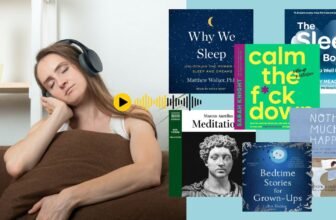




Introduction
Getting a good night’s sleep is essential for your health, mood, and overall productivity. If you struggle with falling asleep or staying asleep, these sleep tips can help you improve your sleep quality naturally. From bedtime routines to creating a perfect sleep environment, these strategies are easy to follow and effective.
1. Stick to a Consistent Sleep Schedule
Going to bed and waking up at the same time every day helps regulate your body’s internal clock. Even on weekends, maintaining a routine can improve sleep quality and help you fall asleep faster.
2. Create a Relaxing Bedtime Routine
Develop a calming routine before bed, such as reading a book, meditating, or using sleep sprays like lavender or chamomile. This signals your body that it’s time to wind down.
3. Optimize Your Sleep Environment
Keep your bedroom dark, quiet, and cool. Invest in comfortable beds, pillows, and blankets to enhance sleep comfort. Avoid screens at least 30 minutes before bedtime to reduce blue light exposure.
4. Watch Your Diet and Caffeine Intake
Avoid heavy meals, alcohol, and caffeine close to bedtime. These can disrupt your sleep patterns and make it harder to get deep sleep.
5. Exercise Regularly
Regular physical activity improves sleep quality, reduces insomnia, and helps regulate your sleep cycles. Aim for at least 30 minutes a day but avoid intense workouts right before bed.
6. Manage Stress and Anxiety
Stress is a major contributor to poor sleep. Try relaxation techniques like deep breathing, journaling, or meditation to calm your mind before bed.
7. Limit Naps During the Day
While short naps are okay, long or late-day naps can interfere with your nighttime sleep. Keep naps under 30 minutes and earlier in the afternoon.
8. Choose the Right Mattress and Pillow
Your mattress and pillow are crucial for spinal alignment and comfort. Consider a memory foam mattress or hybrid mattress and a pillow that suits your sleeping position.
9. Use Sleep Aids Wisely
Natural sleep supplements like melatonin or magnesium can help regulate sleep cycles. Always follow dosage instructions and consult a doctor if needed.
10. Consider a Sleep Tracker or AI Sleep Assistant
Modern sleep gadgets and AI sleep chatbots can track your sleep patterns and offer personalized sleep tips, helping you optimize your sleep habits over time.
Conclusion
Improving your sleep doesn’t require drastic changes—small adjustments to your habits, environment, and bedtime routines can make a big difference. Follow these sleep tips to wake up refreshed, energized, and ready for the day.







